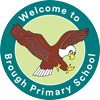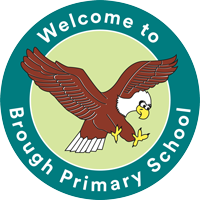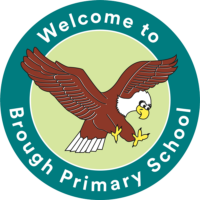At Brough Primary School we make provision for children with Special Educational Needs and/or Disability within each of the four categories defined in the 2015 SEND Code of Practice (para 6.28 – 6.35):
• Communication and Interaction
• Cognition and Learning
• Social, Emotional and Mental Health
• Sensory and/or Physical
It is not uncommon that children may have SEND that falls into one or more of the above categories.
Social, Emotional, Mental Health (SEMH)
Social, emotional, and mental health needs can manifest in many different ways and can look different for all children. They could find managing their relationships with other people difficult and may display behaviour that can hinder theirs and other’s learning that can negatively impact on their health, well-being and their quality of life. Some children may have disorders such as Attention, Deficit Disorder (ADD), Attention Deficit Hyperactivity Disorder (ADHD), or attachment disorder.
How does Brough Primary School support children with Social, Emotional, Mental Health (SEMH) needs?
Every child is treated as an individual and pastoral arrangements can be made discreetly as required.
Across the school the children use Zones of Regulation (ZOR) which is delivered through our PSHCE curriculum. It develops awareness of feelings, energy and alertness levels, while exploring a variety of tools and strategies for regulation, prosocial skills, self-care and overall wellness.
We have two staff members who are ELSA (Emotional Literacy Support Assistant) trained. They work with individual children on activities tailored to suit their emotional need and work closely with parents to provide support.
At Brough Primary School we have a sensory room and quiet rooms which can be used by all children to develop a variety of skills, but which ultimately enriches the provision for children with sensory impairment such as Autism, ADHD, and EBD.
The rooms have a variety of uses and benefits for all children. They provide relaxation activities, visual, tactile and auditory stimulation through the use of a bubble tubes/ projectors. Language development, anger management, speech therapy, hand/eye co-ordination and gross/fine motor skills can all be developed using the room.
The school closely monitors and analyses both classroom and playground behaviour to ensure that the necessary support is provided where needed. The school runs targeted interventions to help support children develop their behaviour and ensure there is limited interruption to learning. We communicate with parents and outside agencies to ensure a positive learning experience for every child, praising and rewarding good behaviour, which sets a high expectation across the school.
We work closely with our attached Educational Psychologist and the Behaviour Support Team to identify and support children’s learning.
Please refer to out SEN Information report for more information.
Useful websites:
https://youngminds.org.uk
https://www.minded.org.uk/ – This is an online resource for families with specific support in how to talk to your child about key worries.
If you are looking to develop relaxation for your child, have a look at this website: https://www.relaxkids.com/
For advice and support for concerns around bullying, cyberbullying, depression, anxiety and many more, please visit the NSPCC website: https://www.nspcc.org.uk/keeping-children-safe/childrens-mental-health/
Try yoga to help with self-regulation and well-being. Cosmic kids: https://www.cosmickids.com/
Or if you are looking for something a little bit different, have a go at Laughter yoga: https://www.youtube.com/watch?v=wtoXb6_oxck



